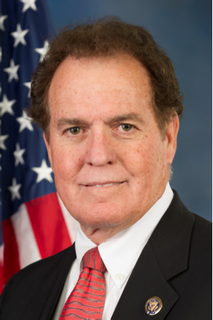A Quote by Clayton M. Christensen
The marginal cost of doing something 'just this once' always seems to be negligible, but the full cost will typically be much higher. Yet unconsciously, we will naturally employ the marginal-cost doctrine in our personal lives.
Related Quotes
I said earlier [2015] year that I thought we'd get to 10 or 20 bucks [per barrel ] because that's the marginal cost, and when you're in a price war, it's the marginal cost that determines the price.It is a price war because basically the OPEC reason did not cut production in their November 2014 meeting was that they got tired of cutting production and having American frackers and Russians et cetera grab market share.
And having thoughtlessly polluted our streams and rivers, we have seen in recent years a rapidly growing market for bottled drinking water. I am sure that some will say that a rapidly growing market for water is "good for the economy," and most of us are still affluent enough to pay the cost. Nevertheless, it is a considerable cost that we are now paying for drinkable water, which we once had in plentiful supply at little cost or none at all. And the increasing of the cost suggests that the time may come when the cost will be unaffordable.
On the Internet, there are an unlimited number of competitors. Anybody with a Flip camera is your competition. What makes it even worse is that YouTube is willing to subsidize the cost of your bandwidth. So anybody can create and distribute for free basically, but the real cost is marketing. And that's always the big cost - how do you stand out and what's the cost of standing out? And there's no limit to that cost.
Mr. Trump wants to turn the U.S. economy into the kind of real estate development that has made him so rich in New York. It will make his fellow developers rich, and it will make the banks that finance this infrastructure rich, but the people are going to have to pay for it in a much higher cost for transportation, much higher cost for all the infrastructure that he’s proposing. You could call Trump's plan "public investment to create private profit". That's really his plan in a summary.


































